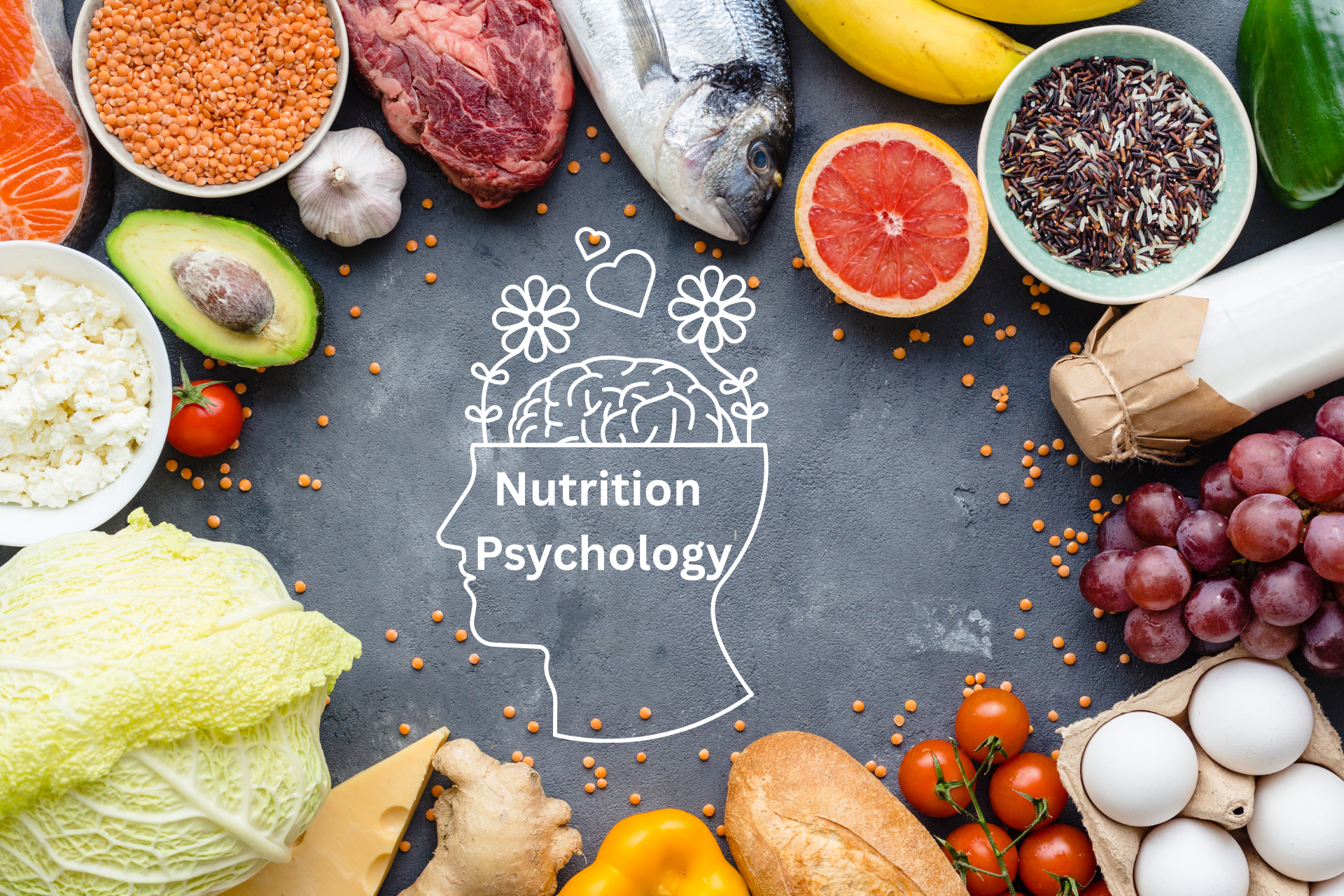

While mindful eating focuses on how we eat, nutrition psychology delves into the fascinating why. This emerging field explores the intricate interplay between our thoughts, emotions, beliefs, and behaviors related to food and eating. It acknowledges that our food choices are rarely purely about physical hunger or nutritional needs; they are deeply influenced by a complex web of psychological, emotional, social, and cultural factors.
Consider, for instance, the profound impact of stress. In moments of heightened anxiety or pressure, many of us find ourselves reaching for comfort foods – often high in sugar, fat, or salt – not because we’re physically hungry, but because these foods temporarily soothe our nervous system. Emotions like sadness, boredom, loneliness, or even joy can trigger specific eating patterns. We might eat to celebrate, to numb pain, or to fill an emotional void. These aren’t signs of weakness; they’re deeply ingrained coping mechanisms, often developed over years.
Beyond emotions, our habits play a colossal role. The routine of eating at certain times, in certain places, or with certain people can dictate our food choices, even if those choices don’t align with our well-being. Our beliefs about food – whether it’s “good” or “bad,” “healthy” or “unhealthy,” “allowed” or “forbidden” – are powerful drivers. These beliefs are often shaped by childhood experiences, cultural norms, media messages, and the pervasive influence of diet culture, which frequently promotes a sense of guilt and shame around eating. Societal pressures, family traditions, and even our personal identity can unconsciously steer our dietary paths.
Nutrition psychology helps us unravel these complex layers, providing invaluable insights into the root causes of our eating behaviors. It encourages us to ask: “What am I truly hungry for?” Is it comfort, connection, distraction, or genuine physical nourishment? By understanding these underlying psychological drivers, we gain the compassion and clarity needed to address them not with judgment, but with curiosity and a desire for genuine healing. It’s about recognizing that our relationship with food is a mirror reflecting our inner world, and by understanding that reflection, we can begin to cultivate a more harmonious and intentional way of being.
The Symbiotic Relationship: Mindful Eating Meets Nutrition Psychology
Here’s where the magic truly unfolds: mindful eating and nutrition psychology aren’t separate disciplines; they are two sides of the same beautifully crafted coin, working in powerful synergy to create a truly holistic approach to well-being. Mindful eating provides the practical tools and the how-to for experiencing food with presence and awareness, while nutrition psychology offers the profound why behind our eating patterns, helping us understand and address the underlying emotional and psychological triggers. Together, they form an unbreakable bond, guiding us toward a more intuitive, joyful, and sustainable relationship with food.
Imagine you’re mindfully eating a meal, paying close attention to your body’s signals. You might notice that you’re eating even though you’re not physically hungry, or that you’re reaching for a particular food despite feeling full. This is where mindful eating shines a light on a potential area for exploration. Now, nutrition psychology steps in. It prompts you to ask: “What emotion am I feeling right now? Am I stressed, bored, anxious, or sad?” By identifying the underlying emotion, you can then choose to address that emotion directly, rather than using food as a coping mechanism. Perhaps a brief walk, a chat with a friend, or a few deep breaths would serve you better than another bite.
Conversely, if you’ve been caught in a cycle of restrictive dieting, nutrition psychology helps you understand the psychological toll of deprivation – the rebound cravings, the guilt, the constant mental obsession with food. Mindful eating then offers a compassionate pathway out. By encouraging you to listen to your body’s true hunger signals and allowing yourself to enjoy all foods in moderation, mindful eating helps dismantle the “forbidden fruit” mentality that often leads to binging. It teaches you to trust your body again, to find satisfaction in appropriate portions, and to release the fear of certain foods.
This powerful duo empowers you to move beyond rigid rules and embrace genuine food freedom. It’s not about willpower; it’s about wisdom. It’s not about deprivation; it’s about discernment. By integrating awareness with understanding, you build a foundation for lasting change, transforming your eating habits from a source of struggle into a source of profound self-care and nourishment. This harmonious approach allows you to truly flourish, both physically and emotionally, creating a vibrant, resilient you.

Practical Steps to Cultivate a Mindful Relationship with Food
Embarking on the journey of mindful eating and nutrition psychology is a gentle, iterative process, not a destination. It’s about cultivating new habits with kindness and curiosity, one step at a time. Here are some practical, actionable steps you can begin to integrate into your daily life to foster a more intentional and peaceful relationship with food:
These steps are an invitation to explore, to be curious, and to treat yourself with the same gentle care you would offer a cherished friend. It’s a beautiful journey of self-discovery, leading to a more harmonious and joyful relationship with your body and your food.
The Nutritional Science Behind the Psychology
While mindful eating and nutrition psychology emphasize the behavioral and emotional aspects of our relationship with food, it’s crucial to acknowledge the foundational role of nutritional science. These two realms are not separate; they are deeply interconnected, with each influencing the other in profound ways. Understanding the basic science behind how food impacts our bodies and brains can further empower our mindful choices, making our journey even more effective and sustainable.
Our bodies are intricate machines, and the macronutrients (carbohydrates, proteins, fats) and micronutrients (vitamins, minerals) we consume provide the essential building blocks and energy for every cellular process. When we eat mindfully, we often naturally gravitate towards more balanced and nutrient-dense foods because we are more attuned to how different foods make us feel. For instance, a mindful eater might notice that a meal rich in whole grains, lean protein, and healthy fats provides sustained energy and satiety, while a meal high in refined sugars leads to a quick energy spike followed by a crash and irritability. This direct feedback loop reinforces healthier choices.
A fascinating area of research that bridges nutrition and psychology is the gut-brain axis. This bidirectional communication pathway connects our digestive system to our central nervous system. Our gut hosts trillions of microorganisms (the gut microbiome) that produce neurotransmitters, influence inflammation, and even impact our mood and cognitive function. Mindful eating, by promoting slower eating and reducing stress during meals, can significantly improve digestion and gut health. When our gut is healthy, it sends positive signals to the brain, potentially enhancing mood, reducing anxiety, and improving mental clarity. Conversely, a stressed mind can negatively impact gut function, creating a vicious cycle.
Furthermore, mindful eating plays a critical role in blood sugar regulation. When we eat rapidly or consume large amounts of refined carbohydrates, our blood sugar can spike and then crash, leading to energy dips, irritability, and intense cravings. Mindful eating, by encouraging slower consumption and better portion control, helps to stabilize blood sugar levels. Stable blood sugar means more consistent energy, fewer mood swings, and a reduced likelihood of reaching for sugary snacks out of desperation. This physiological stability creates a fertile ground for clearer thinking and emotional balance.
Finally, the connection between stress hormones like cortisol and our eating patterns is undeniable. Chronic stress can lead to increased cravings for high-calorie, palatable foods and can even influence where our body stores fat. Mindful eating, as a practice of presence and self-awareness, inherently reduces stress. By creating a calmer eating environment and fostering a less anxious relationship with food, we can help regulate our stress response, which in turn positively impacts our food choices, metabolism, and overall well-being. The science beautifully underscores what our intuition often tells us: how we eat is just as important as what we eat.
Beyond Dieting: Embracing Food Freedom and Body Acceptance
For too long, the narrative around food and health has been dominated by diet culture – a pervasive system of beliefs that glorifies thinness, demonizes certain foods, and promotes restriction and deprivation as the primary path to well-being. This culture often leaves us feeling inadequate, perpetually striving for an elusive ideal, and trapped in a relentless cycle of “on-again, off-again” dieting that rarely yields sustainable results and frequently harms our mental and physical health.
Mindful eating and nutrition psychology offer a radical, liberating alternative. They invite us to step off the diet roller coaster and embrace a path of food freedom. This isn’t about abandoning healthy eating; it’s about redefining it. Food freedom means:
Hand-in-hand with food freedom comes body acceptance. Diet culture often ties our worth to our weight or appearance, leading to body dissatisfaction and self-criticism. Mindful eating helps us shift our focus from external metrics to internal well-being. It encourages us to appreciate our bodies for what they can do, rather than solely how they look. This doesn’t mean abandoning health goals; it means pursuing health from a place of self-care and respect, rather than self-punishment or shame. It’s about recognizing that every body is unique and deserving of kindness, nourishment, and joyful movement, regardless of its size or shape.
Embracing this philosophy is an act of profound self-love. It liberates you from the constant mental burden of dieting, freeing up mental space and energy for other fulfilling aspects of your life. It fosters a peaceful coexistence with food, allowing you to enjoy meals without guilt and to truly listen to and honor your body’s needs. This journey is about cultivating a sustainable, joyful, and deeply personal relationship with food that nurtures both your physical vitality and your emotional resilience, leading to a life filled with genuine peace and radiant well-being.
Conclusion: A Journey Towards Wholeness
Our relationship with food is one of the most intimate and fundamental connections we have. For too long, it has been fraught with complexity, guilt, and confusion, often overshadowing the profound potential it holds for nourishing our entire being. Yet, by embracing the powerful principles of mindful eating and nutrition psychology, we unlock a pathway to a more harmonious, intuitive, and deeply satisfying way of living.
This isn’t about perfection; it’s about progress, patience, and profound self-compassion. It’s a beautiful journey of rediscovery, inviting you to tune into your body’s innate wisdom, understand the intricate dance between your emotions and your plate, and cultivate a relationship with food that truly serves your highest good. By slowing down, savoring, and listening with kindness, you’re not just improving your physical health; you’re nurturing your mental clarity, fostering emotional resilience, and cultivating a deep sense of peace that radiates through every aspect of your life.
May you embark on this transformative path with curiosity, courage, and an abundance of self-love. The gift of mindful eating and nutrition psychology is the gift of wholeness – a chance to nourish your body, mind, and soul in a way that allows you to truly flourish and live a life filled with vibrant well-being. Your journey to food freedom and inner peace begins with a single, mindful bite.

Monday - Thursday 7 AM - 5 PM PST
admin@selfstalker.com support@selfstalker.com